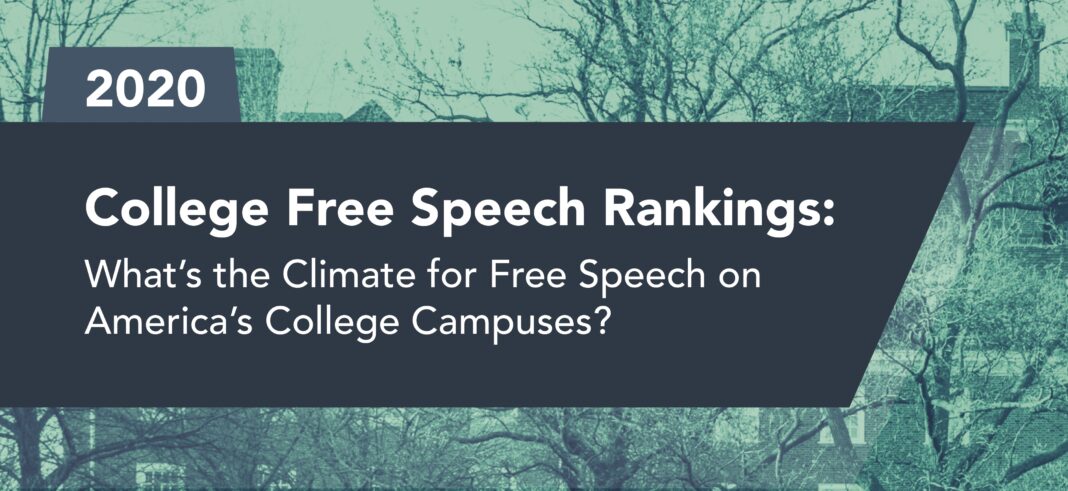
College campuses are designed to be places for exchanging ideas — places to examine and analyze complex ideas from different points of view. Each year, college students, professors, and lecturers gather in classrooms across America (and increasingly online) to examine the most pressing issues facing society, such as the state of race relations in America, or the freedoms of religion and association. A new survey we released in partnership with The Foundation for Individual Rights in Education (FIRE) and RealClearEducation offers insights on the experience of being a student on a particular campus, and what it’s like to engage (or not) in the free exchange of ideas on that campus.
The College Free Speech Rankings project provides the first-ever way to comprehensively assess and compare the culture of freedom of speech on college campuses in America. These rankings can be used by prospective students and their parents to better understand the campus climate at colleges they are considering. Professors, administrators, staff, and current students can also use them to better understand the student experience on their campus by exploring which topics are most uncomfortable for students to discuss openly, as well as which groups feel most ready to do so.
Here is what our research covers:
- Administrative support of free speech
- Students’ self-censorship on campus
- Which issues students find difficult to discuss openly
To gain access to more insights, download our free report.
This report was featured in: The Wall Street Journal, Real Clear Education, and Inside Higher Education.
Methodology
The survey was drawn from College Pulse’s American College Student Panel, which includes more than 400,000 undergraduate students representing more than 1,000 two- and four-year colleges and universities in all 50 states. The panel includes students attending large public universities, small private colleges, online universities, historically Black colleges, and religiously affiliated schools.




